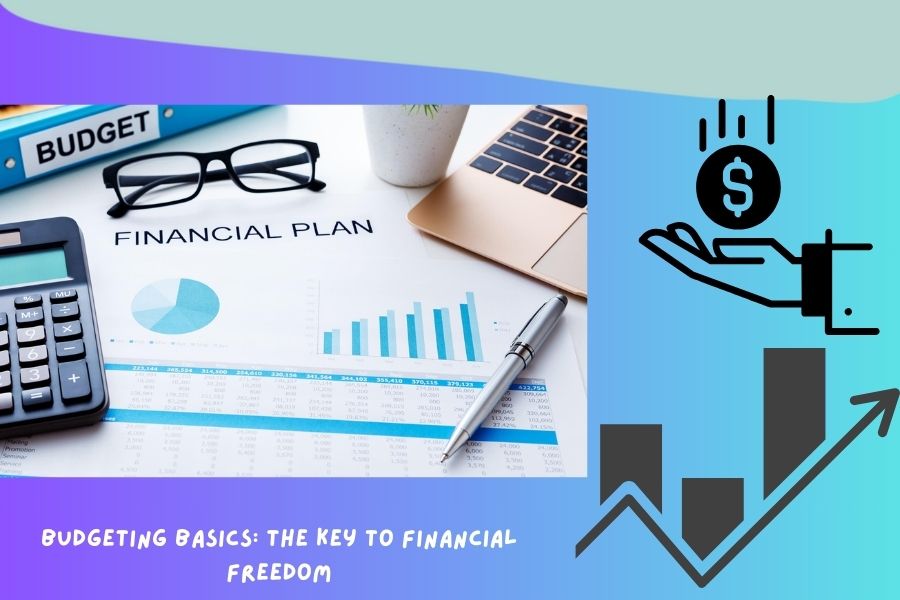Budgeting – it’s a term that often elicits groans and eye rolls. But hold on a sec! Before you click away, consider this: budgeting is like a magic wand that can transform your financial woes into a world of financial freedom and peace of mind. No kidding! And guess what? You don’t need to be a math whiz or a financial guru to master it. So, buckle up and get ready to embark on a journey to financial awesomeness!
Why Budgeting Matters
Alright, let’s start with the basics. Why does budgeting even matter? Picture this: you get your paycheck, you pay your bills, you splurge on that fancy coffee, and before you know it, poof! Your money disappears faster than you can say “budget”. Sound familiar? Well, that’s where budgeting swoops in to save the day.
Budgeting isn’t just about pinching pennies and depriving yourself of life’s little luxuries. Nope, it’s about taking control of your finances so you can live the life you want without constantly stressing about money. It’s like having a roadmap that guides you towards your financial goals, whether it’s buying a house, taking a dream vacation, or retiring like a boss.
Getting Started: The Budgeting 101
Now that we’ve established why budgeting is the bomb, let’s dive into the nitty-gritty of how to actually do it. Don’t worry, it’s simpler than you think!
- Track Your Expenses: Before you can create a budget, you need to know where your money is going. Take a week or a month to track every single penny you spend. Yes, even that impulse buy at the snack aisle. Trust me, it’ll be an eye-opener.
- Calculate Your Income: Next up, tally up all your sources of income. This includes your salary, side hustles, and any other moolah that comes your way. Be sure to use your net income (after taxes) for a more accurate picture.
- Set Your Financial Goals: What do you want to achieve with your money? Whether it’s saving for a rainy day, paying off debt, or investing for the future, having clear financial goals will help shape your budgeting strategy.
- Create Your Budget: Armed with your expense tracking and income details, it’s time to create your budget. Start by allocating your income towards essential expenses like rent, utilities, groceries, and transportation. Then, divvy up the remaining cash for your financial goals and discretionary spending.
- Stick to It (Mostly): Ah, the hardest part – sticking to your budget. It’s okay to veer off course occasionally (we’re only human, after all), but try to stay on track as much as possible. Adjust your budget as needed and learn from your slip-ups.
The Benefits of Budgeting: More Than Just Numbers
Alright, so budgeting helps you keep tabs on your money. Big whoop, right? Wrong! Budgeting offers a slew of benefits that go beyond just crunching numbers. Check it out:
- Financial Freedom: Say goodbye to living paycheck to paycheck and hello to financial freedom! With a budget in place, you’ll have a clear picture of your financial situation and the confidence to make smart money decisions.
- Reduced Stress: Money woes keeping you up at night? Not anymore! Budgeting helps alleviate financial stress by giving you a sense of control over your money. Ah, sweet relief!
- Achieve Your Goals: Dreaming of buying a house, traveling the world, or retiring early? With a budget, those dreams can become a reality. By allocating money towards your goals, you’ll be well on your way to achieving them.
- Emergency Preparedness: Life is full of surprises, and not all of them are pleasant. But with an emergency fund built into your budget, you’ll be ready to tackle whatever curveballs come your way. Bring it on, universe!
Budgeting Tools and Resources
Okay, so you’re sold on the whole budgeting thing. But where do you start? Fear not, my budgeting newbie! There are a plethora of tools and resources available to help you on your budgeting journey. Here are a few favorites:
- Budgeting Apps: Say goodbye to spreadsheets and hello to budgeting apps! These nifty little tools make budgeting a breeze by automatically categorizing your expenses, tracking your spending, and even sending you pesky reminders when you overspend. Some popular budgeting apps include Mint, YNAB (You Need a Budget), and PocketGuard.
- Envelope System: If you’re more of a hands-on budgeter, the envelope system might be right up your alley. Simply allocate cash to different envelopes for your various spending categories (e.g., groceries, entertainment, dining out) and only spend what’s in each envelope. It’s old-school, but it works!
- Online Budgeting Courses: Want to take your budgeting game to the next level? Consider enrolling in an online budgeting course. From basic budgeting principles to advanced money management strategies, there’s a course out there for every budgeting enthusiast.
Budgeting Tips and Tricks
Alright, you’ve got the basics down pat. But before you embark on your budgeting journey, here are a few tips and tricks to help you along the way:
- Be Realistic: When creating your budget, be sure to set realistic goals and expectations. There’s no point in budgeting $50 for groceries if you know you spend closer to $200. Be honest with yourself and your spending habits.
- Plan for Fun: Budgeting doesn’t mean you have to become a hermit and never enjoy life again. Be sure to allocate some cash for fun activities and indulgences. After all, what’s the point of budgeting if you can’t enjoy the fruits of your labor?
- Stay Flexible: Life happens, and sometimes unexpected expenses pop up out of nowhere. That’s why it’s important to stay flexible with your budget. Don’t beat yourself up if you overspend one month or have to dip into your emergency fund. Just adjust your budget accordingly and keep on truckin’.
- Celebrate Your Wins: Budgeting can be tough work, so be sure to celebrate your wins along the way. Whether it’s reaching a savings goal, paying off debt, or sticking to your budget for a whole month, take a moment to pat yourself on the back. You deserve it!
Budgeting in Action: A Case Study
Alright, enough chit-chat. Let’s see budgeting in action, shall we? Meet Sarah, a 30-something marketing manager who’s ready to take control of her finances once and for all. Here’s a breakdown of Sarah’s budget:
| Category | Monthly Budget |
|---|---|
| Rent | $1,200 |
| Utilities | $150 |
| Groceries | $300 |
| Transportation | $100 |
| Dining Out | $150 |
| Entertainment | $100 |
| Savings | $500 |
| Emergency Fund | $200 |
| Debt Repayment | $300 |
| Miscellaneous | $200 |
| Total | $3,300 |
As you can see, Sarah has allocated her income towards her essential expenses, financial goals, and a little bit of fun money for good measure. With her budget in place, Sarah can rest easy knowing that she’s on the right track towards financial freedom.
In Conclusion: Budgeting Rocks!
And there you have it, folks! Budgeting may not be the sexiest topic around, but it sure is a game-changer when it comes to achieving financial freedom. So, whether you’re a budgeting newbie or a seasoned pro, take the plunge and start budgeting like a boss. Your future self will thank you!



